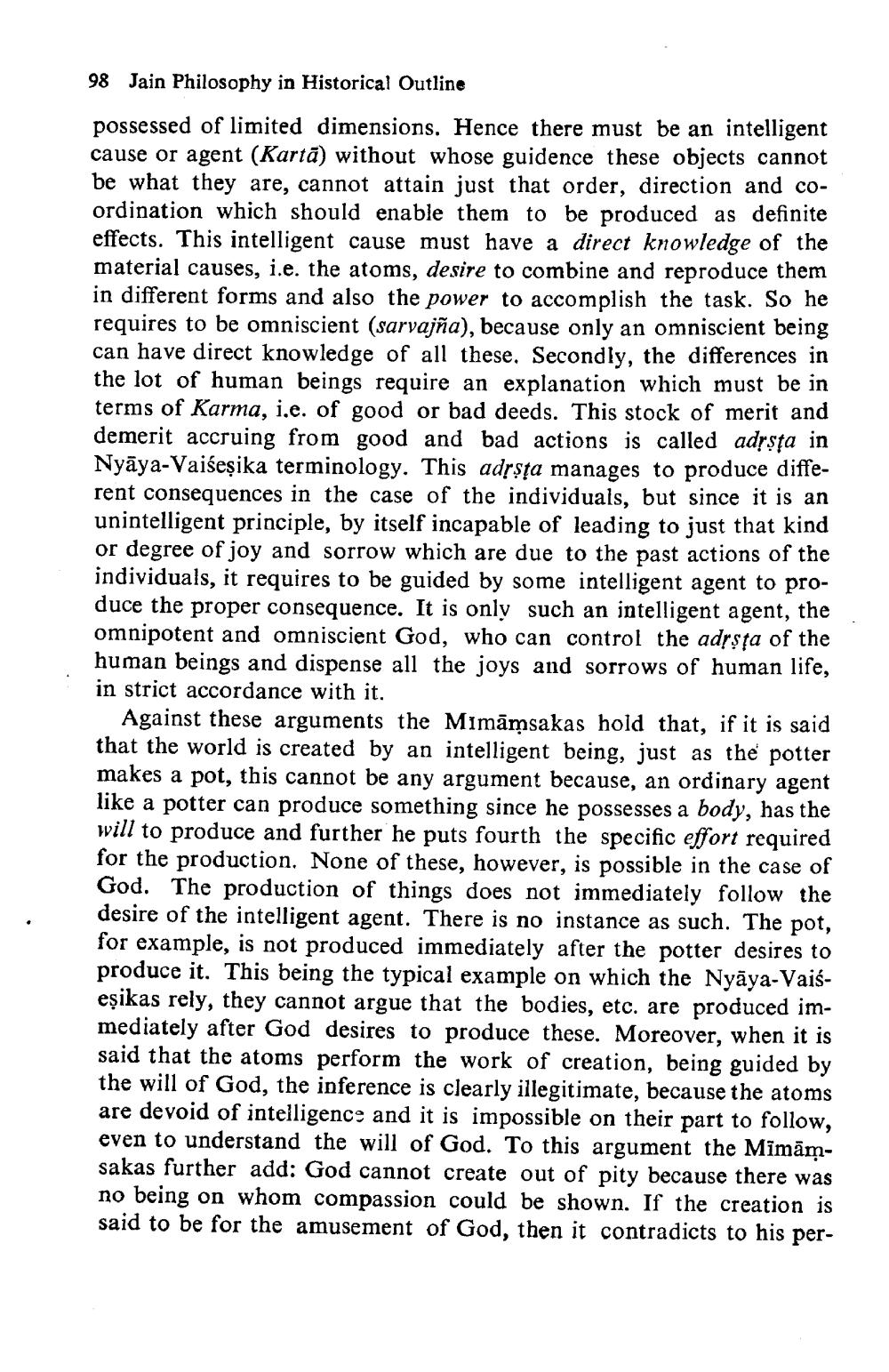________________
98
Jain Philosophy in Historical Outline
possessed of limited dimensions. Hence there must be an intelligent cause or agent (Kartā) without whose guidence these objects cannot be what they are, cannot attain just that order, direction and coordination which should enable them to be produced as definite effects. This intelligent cause must have a direct knowledge of the material causes, i.e. the atoms, desire to combine and reproduce them in different forms and also the power to accomplish the task. So he requires to be omniscient (sarvajña), because only an omniscient being can have direct knowledge of all these. Secondly, the differences in the lot of human beings require an explanation which must be in terms of Karma, i.e. of good or bad deeds. This stock of merit and demerit accruing from good and bad actions is called adrsta in Nyāya-Vaiseșika terminology. This adrsța manages to produce different consequences in the case of the individuals, but since it is an unintelligent principle, by itself incapable of leading to just that kind or degree of joy and sorrow which are due to the past actions of the individuals, it requires to be guided by some intelligent agent to produce the proper consequence. It is only such an intelligent agent, the omnipotent and omniscient God, who can control the adrsta of the human beings and dispense all the joys and sorrows of human life, in strict accordance with it.
Against these arguments the Mimāmsakas hold that, if it is said that the world is created by an intelligent being, just as the potter makes a pot, this cannot be any argument because, an ordinary agent like a potter can produce something since he possesses a body, has the will to produce and further he puts fourth the specific effort required for the production. None of these, however, is possible in the case of God. The production of things does not immediately follow the desire of the intelligent agent. There is no instance as such. The pot, for example, is not produced immediately after the potter desires to produce it. This being the typical example on which the Nyāya-Vaiseşikas rely, they cannot argue that the bodies, etc. are produced immediately after God desires to produce these. Moreover, when it is said that the atoms perform the work of creation, being guided by the will of God, the inference is clearly illegitimate, because the atoms are devoid of intelligence and it is impossible on their part to follow, even to understand the will of God. To this argument the Mīmāmsakas further add: God cannot create out of pity because there was no being on whom compassion could be shown. If the creation is said to be for the amusement of God, then it contradicts to his per




